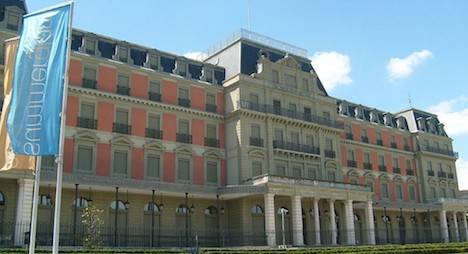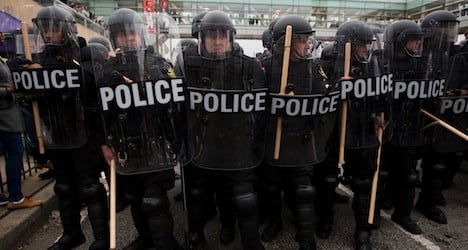So Se Pyon first interrupted a statement by the head of the Japanese Association of Families of Victims Kidnapped by North Korea to challenge his right to address the council, before standing up and walking out in protest.
Shigeo Iizuka, the head of AFVKN, took the floor on behalf of Japan to speak about his own sister Yaeko Taguchi, who was abducted from Japan by North Korea in 1978.
"She pleaded desperately to be returned to Japan for the sake of her infant children," he told the council.
Pyongyang admitted in 2002 that it had abducted about a dozen Japanese nationals over two decades and said eight of them had died, including Taguchi.
Tokyo has rejected the North's claims that some of the abducted had committed suicide.
Tensions remain high between the two countries over a range of issues, particularly North Korea's nuclear programme.
Just seconds into Iizuka's speech, So banged his table to interrupt the intervention.
"I need the clarification if he is a representative of the government of Japan or not," he said.
When council president Baudelaire Ndong Ella informed So that Iizuka had been duly accredited to speak, he stood up and walked out of the council.
The move came as the council discussed a searing 400-page report by a team of UN investigators documenting a range of brutal human rights abuses in the country, including the extermination of people, enslavement and sexual violence.
The team, headed by Australian Michael Kirby, estimated that 200,000 people from other countries had been abducted by North Korea or disappeared after travelling there willingly.
Most were South Koreans stuck after the 1950-1953 Korean War ended, and ethnic Koreans who arrived from Japan after 1959.
Hundreds of South Koreans, Japanese and nationals of countries including Thailand, Malaysia, Lebanon, Romania and France have also been press-ganged as language teachers or even spouses.
North Korean defectors have also been kidnapped from countries including China.
"These international enforced disappearances are unique in their intensity, scale and nature," the report said.
Monday's discussion came after a widely publicised meeting last week between the elderly mother of another Japanese woman kidnapped and taken to North Korea as a schoolgirl with her long-lost granddaughter.
Megumi Yokota who was only 13 years old when she was kidnapped by North Korean agents in 1977 on her way home from school.
Yokota's parents spent five days last week with their granddaughter, 26-year-old Kim Eun-Gyong, and her family in the Mongolian capital Ulan Bator, the foreign ministry said without offering details.
Kirby on Monday insisted that North Korea should "allow separated families to communicate with each other through mail and telephone and to permanently reunite."



 Please whitelist us to continue reading.
Please whitelist us to continue reading.
Member comments